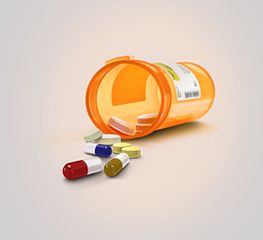
Image via Mpelletier1 / Wikimedia
When we take medication, some of it gets excreted in our waste. And from there, it often ends up in water.
John Kelly of Loyola University Chicago says common pharmaceuticals can harm benthic microbes – microorganisms that grow in the sediment at the bottom of rivers.
“The microbes are at the bottom of the food web in these rivers and streams, and so if the presence of these drugs is decreasing their ability to grow, it could have significant effects on the ecosystem,” he explains.
Kelly says people can help by not taking medication unless it’s truly needed, and to never flush extra pills down the toilet. Instead, look for municipal take-back programs so they can be disposed of properly.
Get Schooled:
- Check out this article about John Kelly’s research, from Loyola University Chicago.
- Learn more about pharmaceuticals in water, from American Rivers.
- Read up on the Great Lakes Pharmaceutical Product Stewardship Initiative.
- Find out how to properly dispose of unused medicactions in your area.
The fine print:
- This segment was produced in partnership with Cornell University’s Atkinson Center for a Sustainable Future




